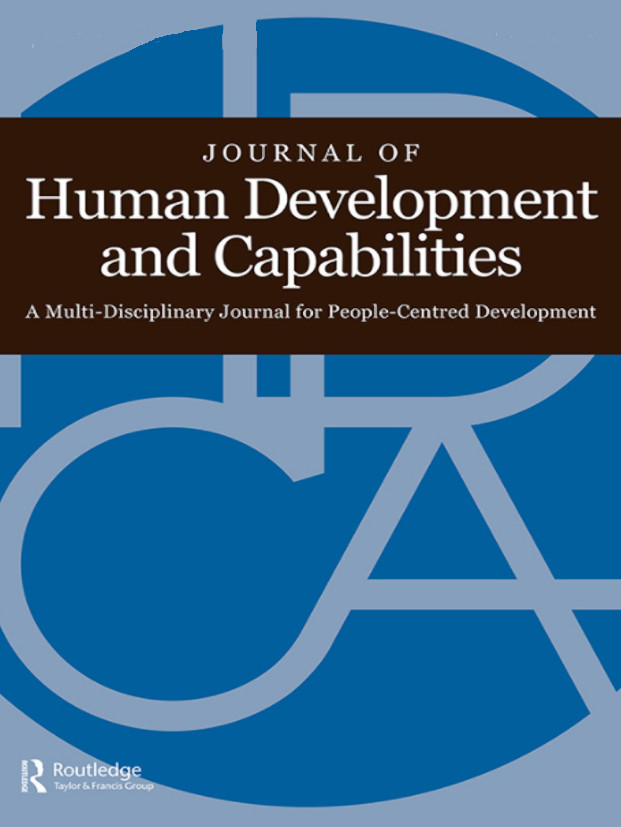On the Nature and Determinants of Poor Households’ Resilience in Fragility Contexts

Title: On the Nature and Determinants of Poor Households’ Resilience in Fragility Contexts
Author(s): Christophe R. Quétel, Guy Bordin, Alexandre Abreu, Ilektra Lemi & Carlos Sangreman
Publication Date: 2021-05-31
Publisher: Journal of Human Development and Capabilities
Quotation: Christophe R. Quétel, Guy Bordin, Alexandre Abreu, Ilektra Lemi & Carlos Sangreman (2021) "On the Nature and Determinants of Poor Households’ Resilience in Fragility Contexts," Journal of Human Development and Capabilities, pp. 1-18. DOI: 10.1080/19452829.2021.1929102
Abstract: Several global policy frameworks focus on managing (risks of) disasters affecting broad populations. In those frameworks resilience is a conceptualisation that possibly has important ideological implications. It is often opposed to fragility, and used to validate the notion of recurring insecurity, promote individual adaptability almost in the form of an obligation, and push the idea that crises/catastrophes are opportunities for profound changes. While effects from the COVID-19 pandemic have brought the protective role of the state to the fore, applying the word resilience to poor people requires clarification, especially in contexts of weak state public services and because assessment of complex poverty situations too often remains oversimplified and error-prone. We argue that to build capacity for resilience poor households need policies that protect and help them out of poverty, and that policy-making processes require engagement with people. Individuals must be asked about their perceptions and management of risks and threats, both in daily life and under exceptional circumstances, especially if the resulting stress factors accumulate and interact. This socially informed, place-specific, and multi-level approach could contribute substantially to identifying interventions, reducing poverty and poverty related risks, enhancing well-being and promoting development and cooperation programmes that meet people’s expectations.
Identifier: https://doi.org/10.1080/19452829.2021.1929102
Category: Policy paper
Authored by Christophe R. Quétel, Guy Bordin, Alexandre Abreu, Ilektra Lemi & Carlos Sangreman, On the Nature and Determinants of Poor Households’ Resilience in Fragility Contexts published in the Journal of Human Development and Capabilities – Taylor & Francis Online (31 May 2021) – focuses on the resilience of placed populations in the face of great adversity.
Abstract
Several global policy frameworks focus on managing (risks of) disasters affecting broad populations. In those frameworks resilience is a conceptualisation that possibly has important ideological implications. It is often opposed to fragility, and used to validate the notion of recurring insecurity, promote individual adaptability almost in the form of an obligation, and push the idea that crises/catastrophes are opportunities for profound changes. While effects from the COVID-19 pandemic have brought the protective role of the state to the fore, applying the word resilience to poor people requires clarification, especially in contexts of weak state public services and because assessment of complex poverty situations too often remains oversimplified and error-prone. We argue that to build capacity for resilience poor households need policies that protect and help them out of poverty, and that policy-making processes require engagement with people. Individuals must be asked about their perceptions and management of risks and threats, both in daily life and under exceptional circumstances, especially if the resulting stress factors accumulate and interact. This socially informed, place-specific, and multi-level approach could contribute substantially to identifying interventions, reducing poverty and poverty related risks, enhancing well-being and promoting development and cooperation programmes that meet people’s expectations.





